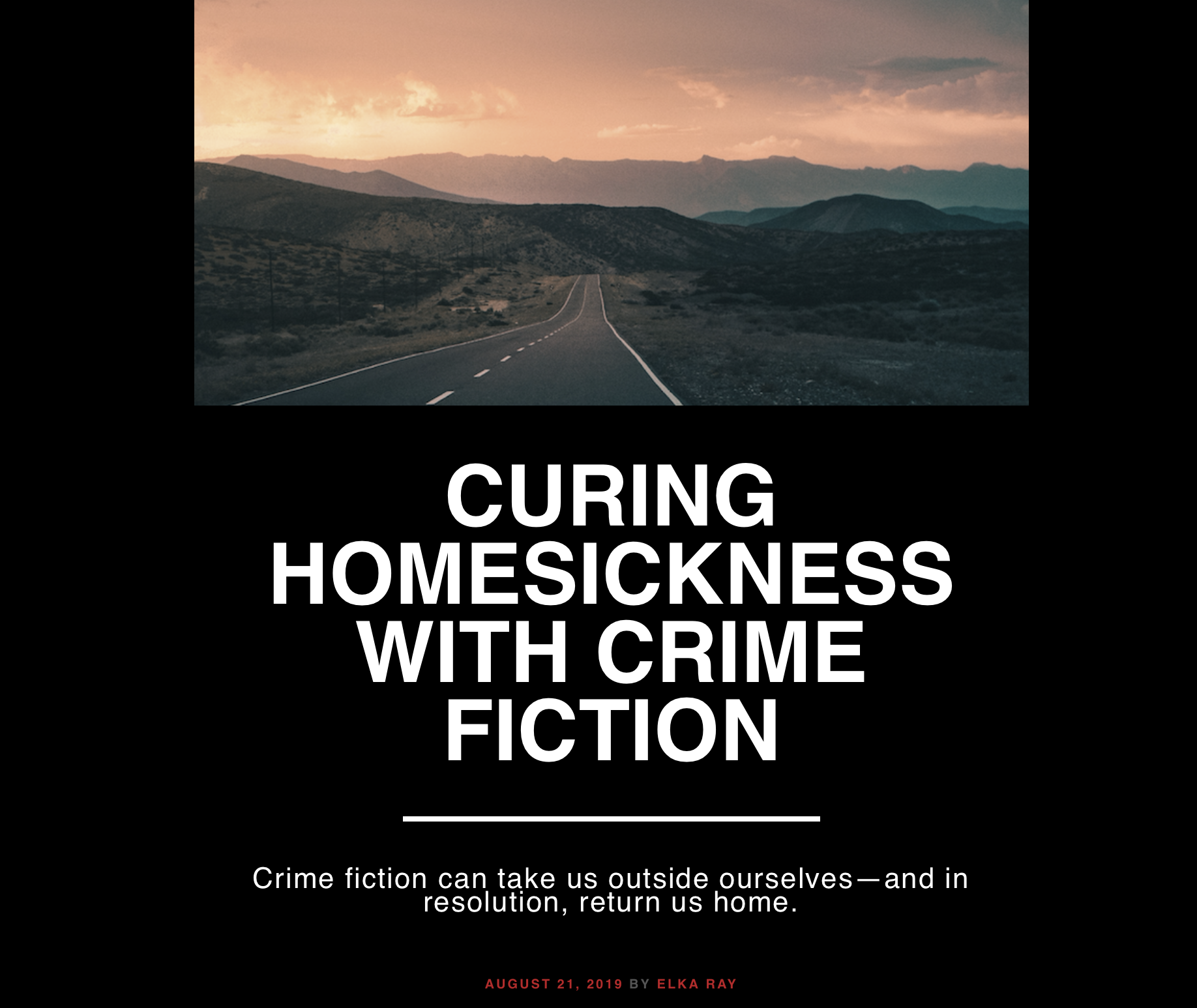Join Elka on CrimeReads for an exploration of mystery stories, homesickness, and belonging:
Crime fiction can take us outside ourselves—and in resolution, return us home.
When I was three-months old, my German mother took me from England, where she’d gone to give birth, to a remote camp in Uganda, where my British geologist father was searching for gold. Both my parents endured miserable childhoods, my dad in a Dickensian boarding school, and my mum in and out of orphanages in Berlin, just after the Second World War. Abuse drove her onto the streets at the age of seventeen. She made her way to England and, thanks to her great determination, beauty and pluck, into the then-coveted position of airline stewardess in the 1960s. Meanwhile, at eighteen, my dad had jumped onto a cargo ship bound for the land of his boyhood dreams—Africa. On a trip back to the UK he literally picked my mum up, hitchhiking in rural Ireland.
I remember nothing about my early years in Central Africa except the smell of warm dry grass that I associate with happiness. Raised on picture books printed in Europe, I’d yell “MEOW!” when the lions got too close to our tent and “WOOF!” at the herds of elephants.
When rogue soldiers abducted my dad in the Congo, he was thrown into an overcrowded cell, tortured, and eventually sentenced—without a trial—to two years hard labor for gold-smuggling. During the first three months of his incarceration, with no news of his fate, my mum feared he was dead. At the same time, fighting between anti-government rebels and Idi Amin’s army spread to our area, forcing her to flee on foot over the Ruwenzori Mountains into the Congo, carrying her infant daughter and a small bag all the way to Entebbe Airport, where a sympathetic East African Airlines pilot took pity and ushered us into first class.
After my dad was rescued, clad in nothing but the shorts he’d been kidnapped in six months earlier, my parents returned to Uganda. It took a few more years—and the increasingly scary policies of Idi Amin – to convince them we’d be safer overseas. On our sad trip out of Africa, I vanished in Zurich Airport. Following a frantic search, my mom found me—a chubby blonde toddler—clutching the big toe of a middle-aged businessman—the only black person in sight. After being pried away from him, I began to shriek my first-ever full sentence: “LET’S GO HOME!”
So how does this relate to my work? As a kid, homesickness felt as much a part of me as blood or bone, whether a product of my nomadic childhood or inherited from my Ray ancestors, sailors and barkeeps—i.e. drunks and adventurers, obviously searching for something beyond their small English village. Home sick. In German it’s Heimweh. Home hurt. The French describe it as a pain too. In Vietnam, where I’ve spent my entire adult life—it’s Nho nha. Miss home. Note how simple and evocative these terms are—words screamed by toddlers. This is a basic human emotion.

